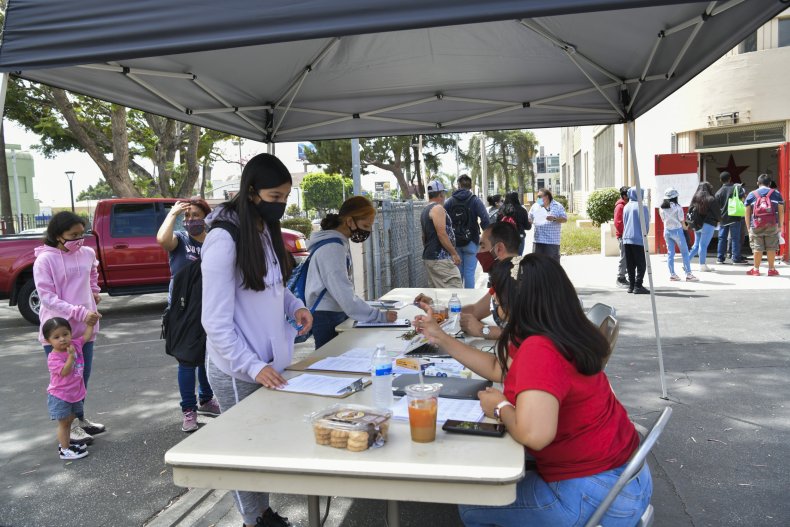After a Year of Pandemic Schooling, Let's Focus on Student Well-Being, Not Grades | Opinion
I am a mentor to Los Angeles high school students. I'm a student success coach, a demanding and fulfilling full-time job supporting teachers and working with more than 100 incredible students at Roosevelt High School in Boyle Heights. My high schoolers are from communities of color and working class families—in other words, those hit hardest by the pandemic. And their lives outside of school impact how they show up to class each day.
The pandemic has not been easy on them, to say the least. Students from these more marginal communities have been falling behind academically, creating a huge learning gap between the haves and have nots. Perhaps more importantly, my students are experiencing a major threat to their general wellbeing.
We need to focus more on this aspect of the pandemic. After all, my students' productivity as learners and test-takers will never be more important than their worth and dignity as human beings.
Amidst a global pandemic, racial tensions, economic hardships, and the everyday risks of family members who are essential workers, my high schoolers are well aware of the difficulties of our current moment; they internalize the pressures of the outside world, which weigh heavily on their hearts.
One student, a freshman, recently shared with me that he had lost multiple family members to COVID-19. He also shared with me his concern about not doing well with his schoolwork. But he—and the adults charged with caring for him—shouldn't be worrying about that; we should be worrying about providing him and other young people with the resources needed to survive this pandemic. That's what's desperately needed.
Another student, a sophomore, shared her overwhelming anxiety with me recently, caused by multiple large assignments, attending class, and helping her nephews with their classes. Her case is not unique: For many teens, the responsibility of caring for younger relatives falls on their shoulders when family members cannot afford to stay home from work. It's a heavy burden to carry.
I could feel her stress through my computer screen. I did my best to listen, and to help. In this difficult time, we owe these children more grace, compassion, and direct action to meet the needs of every child. Kids not turning in work, not showing up to class or participating, must be met with understanding.

Thankfully, many teachers have been extending deadlines, accepting late work, and meeting students where they're at. But there's a bigger opportunity for educators to reimagine what school support looks like for children and adolescents.
We can start with moving toward an education that centers young peoples' well-being, to ensure that our students—especially our students of color—can move from surviving to thriving. We need a school setting where the start of each day is a clean slate, where kids can make new strides in learning and self-understanding. We need a school setting that respects and uplifts student voices, concerns, and ideas.
We have the opportunity to intervene in LA's historically inequitable education system, which allocates a majority of resources to more affluent and white areas. Students in lower-income areas have many additional hurdles to jump over, and yet, they find ways to thrive every day.
My mentees never fail to make me laugh with their quick wit in the Zoom chat box, or blow me away with their insights about class content. They inspire me with their resilience, showing up every day and trying their best.
It's this truth—that young people are capable of meeting and exceeding high expectations—that defies the harsh reality of the pandemic, which exacerbates the deepest areas of inequality in the lives of our most marginalized students.
There's been so much talk about how "behind" kids are academically. But if we really want to help students thrive as we work to end the pandemic, we must address their needs as people first and ensure they have the space they need to live their lives and focus on learning.
Xochitl Pasten is in her second year of serving the students of Roosevelt High School in Boyle Heights, Los Angeles with City Year.
The views in this article are the writer's own.


